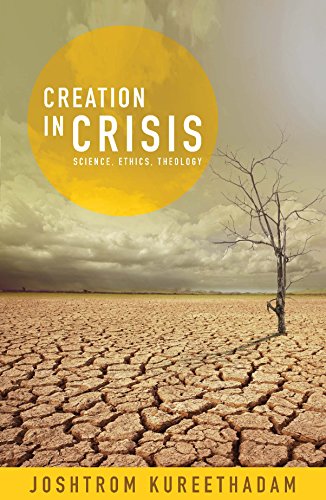1
/
of
1
Creation In Crisis
Creation In Crisis
- Joshtrom Kureethadam
- 390 pages
- 2014-09-12
Regular price
$67.50 CAD
Regular price
Sale price
$67.50 CAD
Unit price
/
per
Couldn't load pickup availability
The book offers a broader and holistic understanding of the contemporary ecological crisis, weaving together the physical, moral, and religious dimensions of the problem into a unitary whole, as a triple cry of the Earth, of the poor and of the gods.
In our present day, the ecological crisis gets mostly reduced, unfortunately, to a mere 'environmental' problem, or even a host of them. We do not realize that it is our very 'common home' that is in peril. The first part of the book explores how Earth came to be gradually shaped as a home in the larger context of cosmic evolution. However, in a very short time, human activities have begun to threaten the very capacity of Earth to be a home for humanity and for the rest of the biotic community. This is our current situation and such a global predicament is the starting point of the book.
The remaining parts of the book offer a wider and integrated view of the crisis facing our common home. It is done by describing the ecological crisis - symbolically as well as in reality - as a triple cry of the Earth, of the poor and of the gods.
The cry of the Earth, in the second part of the book, offers a physical description of the contemporary ecological crisis, based on authoritative studies from the scientific community. The first of the challenges dealt with is climate change along with some of its major impacts like extreme meteorological events, the melting of glaciers, and sea level rise. The other problems discussed in the physical understanding of the crisis include species extinction and biodiversity loss, the pollution of land, water and air, waste, and the depletion of natural resources. The ecological predicament is truly a global crisis as it threatens the whole of our common home and affects all of our common household, both human and non-human communities. The crisis rings bells of alarm, as in the case of climate change, or biodiversity loss, we are crossing into perilous terra incognita, dangerously close to critical tipping points.
The ecological crisis is not merely a physical problem. It has a human face, as explained in the third part of the book, entitled the cry of the poor. The crisis has deleterious impacts on some of the most basic areas of human life like nutrition, health and shelter. The crisis has a disproportionate impact on groups that are already vulnerable like women, children, indigenous groups, minorities, and not the least, the future generations. As the impacts of the ecological crisis impinge on the fundamental human right to a dignified life, questions of eco-justice are bound to emerge. The tragic realization that the crisis will hit hardest the poor and the most vulnerable - precisely those who have contributed least to causing the crisis, makes the contemporary ecological crisis one of the greatest ethical dilemmas of our age.
In the fourth part of the book, symbolically entitled the cry of the gods, the deeper spiritual dimension of the crisis is explored. The ecological crisis results primarily from our inability to look at the physical world as God's creation, as God's own home. We have become increasingly blind to the sacramental dimension of creation, the primordial revelation of God's goodness and glory. The ecological crisis results from our disobedience of the very first commandment given to humanity, namely, to be responsible stewards of God's creation. The crisis also reveals how we have ignored the ultimate destiny of all creation to enter into God's own Sabbath, as the whole universe will be recapitulated in Christ.
The main argument of the book is that it is important to look at the contemporary ecological crisis from a triple perspective: physical, moral and theological, and all at once, in order to gain a total view of our ecological predicament, and commensurate with the true magnitude of the challenge facing our common planetary home. Joshtrom Kureethadam
SKU: 192525n0nn1nWWW | ISBN: 9781626981003


